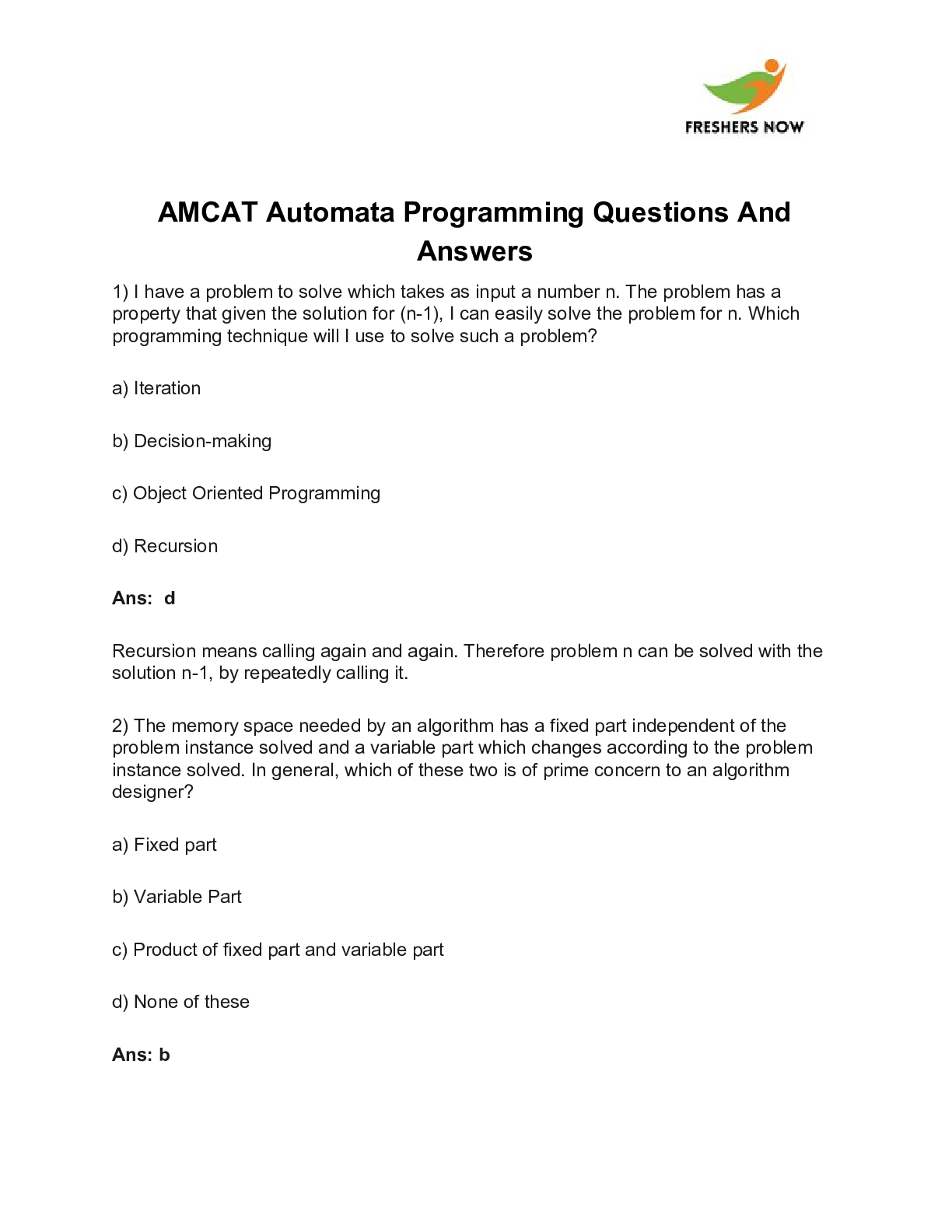Education > QUESTIONS & ANSWERS > FTCE K-6 Elementary Education, Questions with accurate answers. Latest Update (All)
FTCE K-6 Elementary Education, Questions with accurate answers. Latest Update
Document Content and Description Below
FTCE K-6 Elementary Education, Questions with accurate answers. Latest Update Developmental Stages of Writing - ✔✔-Pre-writing, drafting, revising, editing, publishing Diagnostic Assessment ... - ✔✔-Standardized tests (assessments) that aim to determine a student's strengths and weaknesses Semantic Cuing System - ✔✔-focuses on any meaning a student derives from a sentence based on prior knowledge (does this sentence make sense or not?) Editing - ✔✔-Proofreading the draft for misspelled words, grammatical & mechanical errors. Focus is on mechanics. Publishing - ✔✔-Sharing the final product with an audience Talking to the text - ✔✔-Strategy known as "a think aloud" Historical Fiction - ✔✔-Realistic stories that are set in the past Print - ✔✔-Conveys meaning Informal Assessment - ✔✔-Assessments include but are not limited to: cloze tests, running records, anecdotal notes, rubrics, portfolios, informal reading inventories Biography - ✔✔-Stories that tell about a person's life Aesthetic Listening - ✔✔-Listening that is performed for enjoyment and pleasure Partial Alphabetic - ✔✔-Letter is associated with sound at this stage Pre-Alphabetic - ✔✔-Relies on visual cues to help read words. Usually pre-k stage. (ex.- knowing McDonald's b/c of the golden arches) Fantasy - ✔✔-Stories that cannot happen in the real world Fluency - ✔✔-Ability to read quickly, accurately and with proper expression Graphophonemic Cuing System - ✔✔-Focuses on various visual cues & knowledge about the relationship between sounds & symbols. "Does this look right?" Hint: "graphic" Primary Sources - ✔✔-A document or piece of work that was written, recorded or created during a particular time period. Examples: photos, speeches, interviews, diaries, videos, audio Visual Media - ✔✔-Also known as print media. Examples: video, t.v., radio Artifacts - ✔✔-Real objects, usually representative of a particular culture or event Visual - ✔✔-Is related to the "look" of the letter in a word and the word itself. Used by a reader when he studies the beginning sound, word length, word chunks, etc. Part of the graphophonemic cuing system. Phonological Awareness - ✔✔-Includes ability of a student to identify & manipulate large parts of spoken language & awareness of other aspects of sound in language. Examples: alliteration, intonation, rhyming. Concepts of Print - ✔✔-Examples of letters, words, directionality, punctuation Creative Writing - ✔✔-Writing that uses the writer's imagination Rubric - ✔✔-A set of scoring guidelines or criteria for evaluating student work. Often provide specific guidelines regarding teacher expectations. Errors - ✔✔-These are tallied during a reading whenever a child does any of the following: substitutes words, omits words, inserts a word, has to be told the word. Science Fiction - ✔✔-Stories that might happen in the future Text to world - ✔✔-Implies that reader has made a connection from the reading to a topic or event that is taking place in the world. Poetry - ✔✔-Writing that contains short lines, imagery, & elements of sound 3 main cuing systems - ✔✔-Semantic, Syntactic, Graphophonemic Literary Elements - ✔✔-Setting, characters, plot, theme, style Analogy - ✔✔-Detailed & sometimes lengthy comparison or 2 ideas or events Text to Self - ✔✔-This connection implies that the reader has made a connection between the reading & their personal lives Directionality - ✔✔-Top to bottom; left to right Literature Circles - ✔✔-A small, temporary, heterogeneous group of students that gather together to discuss a book of their choice with the goal of enhancing comprehension Prosody - ✔✔-Ability to read with appropriate rhythm, intonation, and expression Summarizing - ✔✔-Simply & concisely paraphrasing what has been read Components of Reading Fluency - ✔✔-AARP; accuracy, automacity, rate, prosody Internet - ✔✔-A communication system that connects computers & their networks all over the world Phonics - ✔✔-The knowledge allows a reader to "decode" words by translating the letters into speech sounds Oral Language Development - ✔✔-Use these activities to help facilitate: whole group, small group, 1:1, discussions, read alouds, echo readings, songs, nursery rhymes, role play, drama, finger plays Fluency Checks - ✔✔-Quick assessments that focus on accuracy, rate & prosody. [Show More]
Last updated: 2 years ago
Preview 1 out of 9 pages
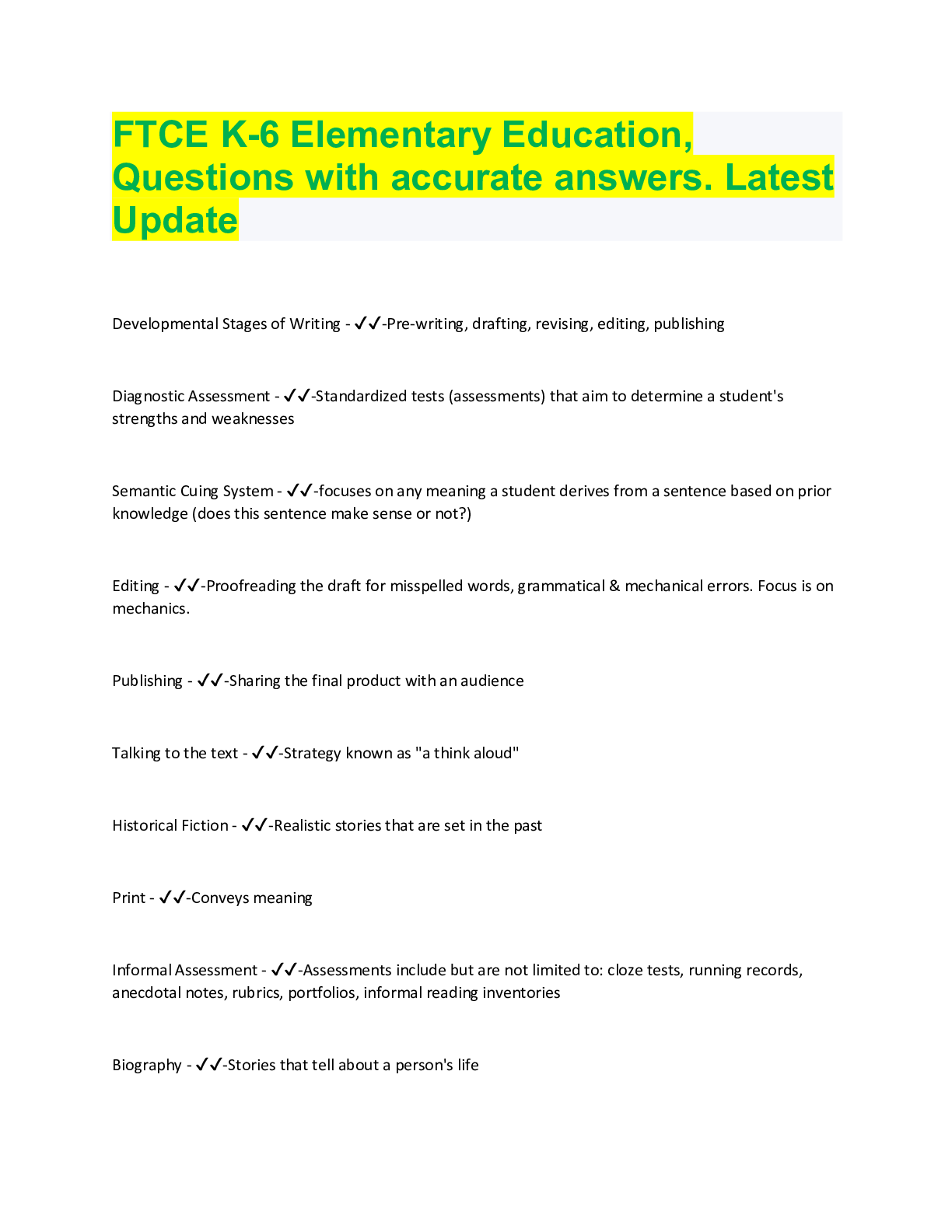
Buy this document to get the full access instantly
Instant Download Access after purchase
Buy NowInstant download
We Accept:

Reviews( 0 )
$9.00
Can't find what you want? Try our AI powered Search
Document information
Connected school, study & course
About the document
Uploaded On
Mar 10, 2023
Number of pages
9
Written in
Additional information
This document has been written for:
Uploaded
Mar 10, 2023
Downloads
0
Views
107


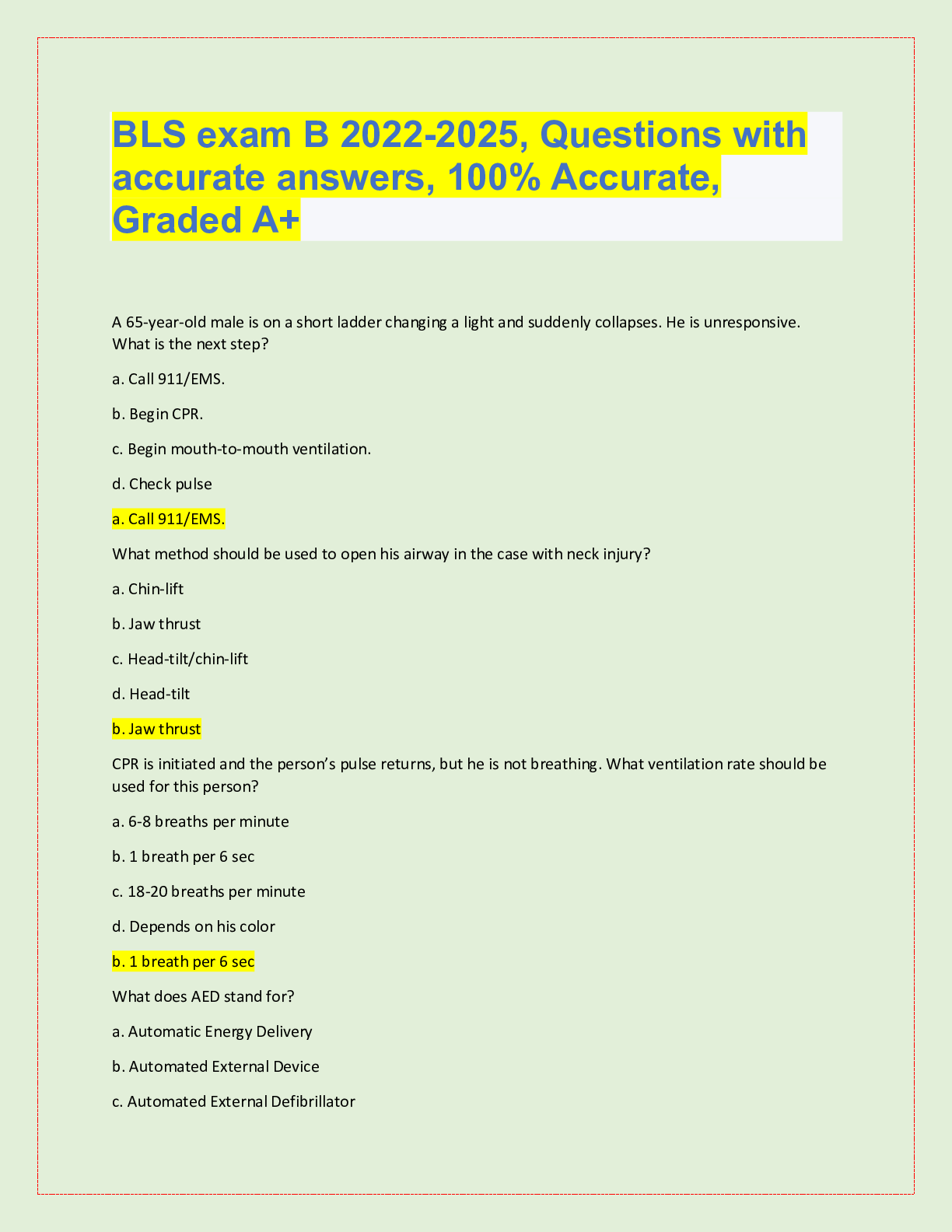











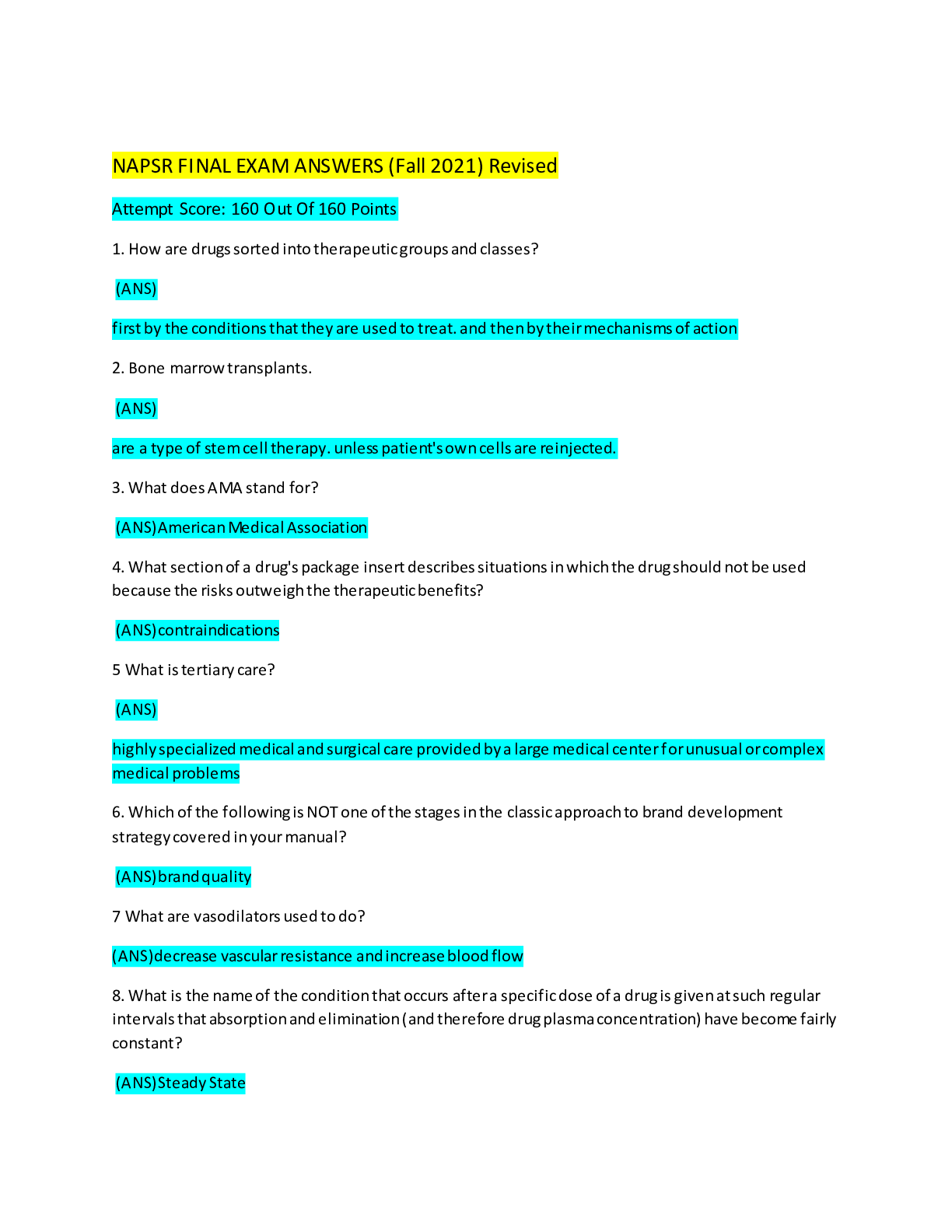

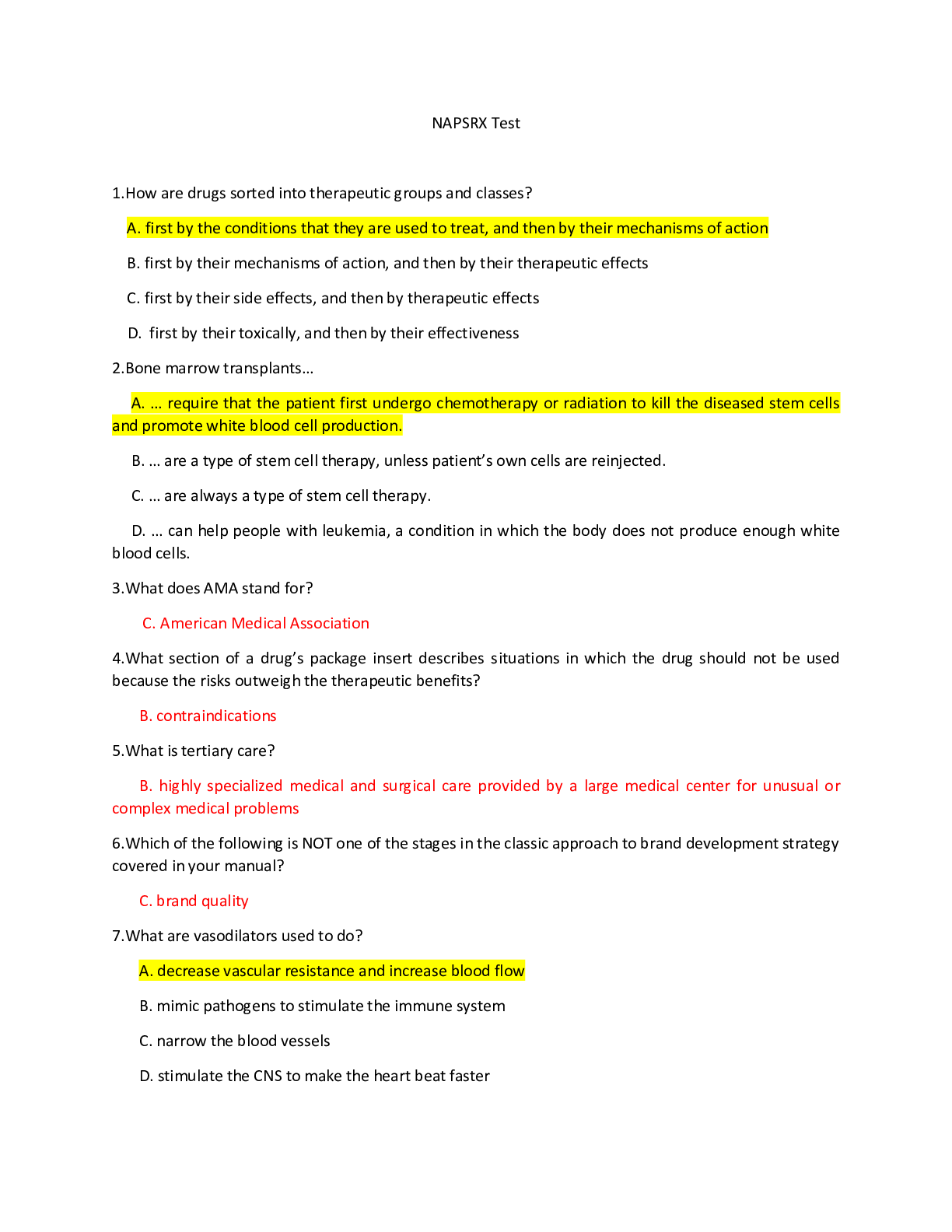
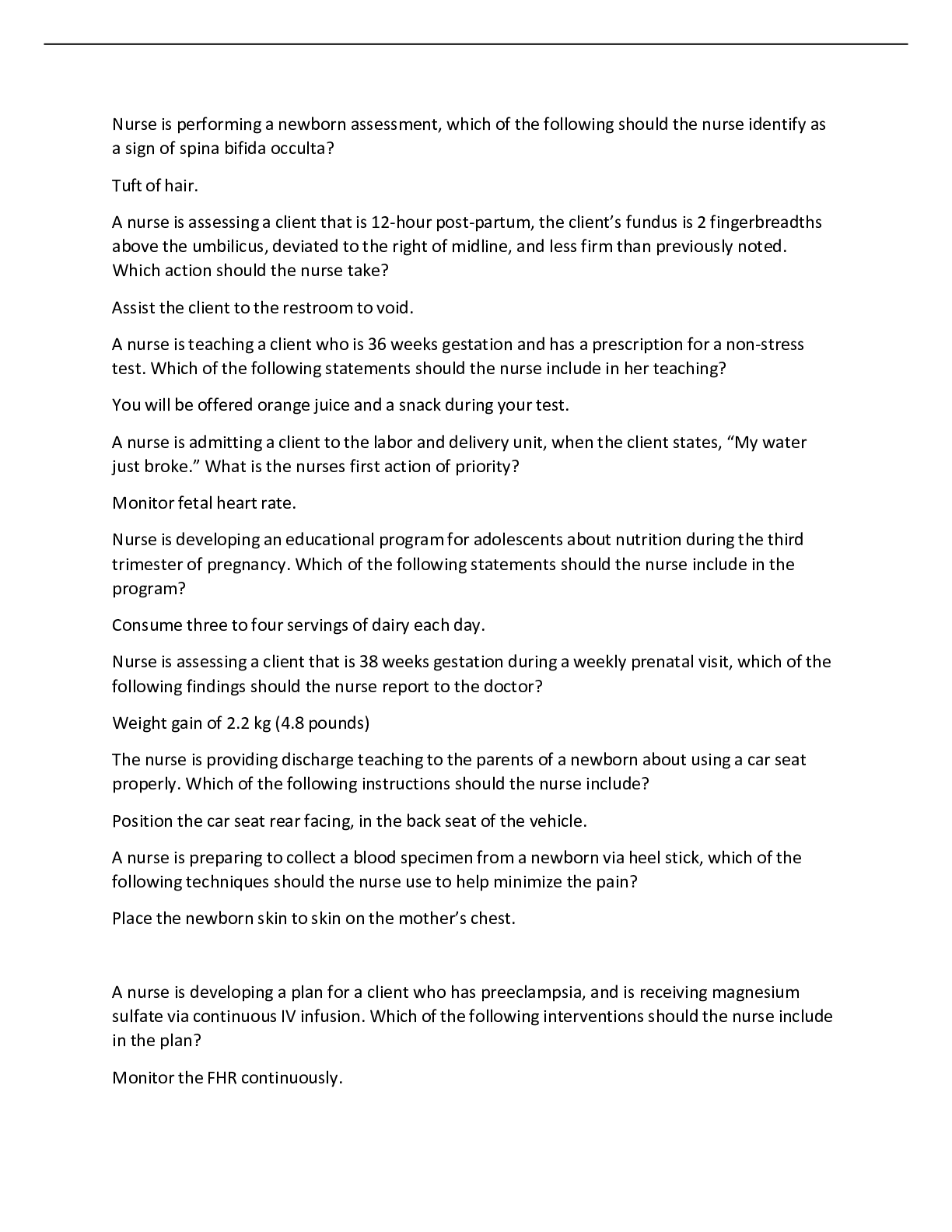


.png)


